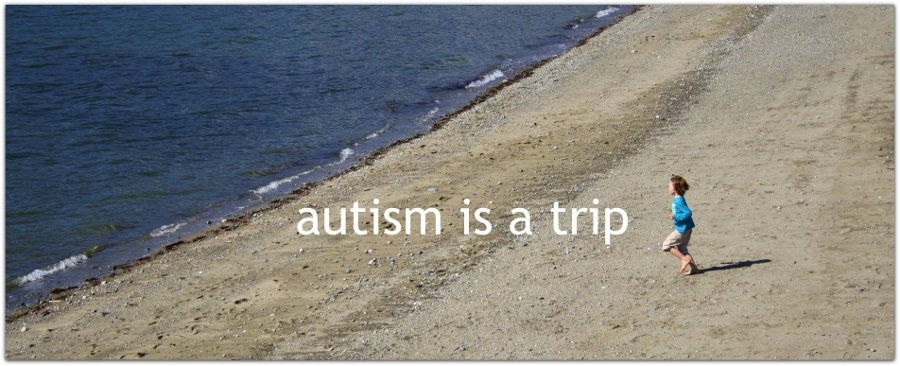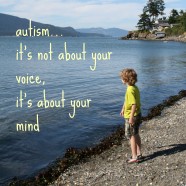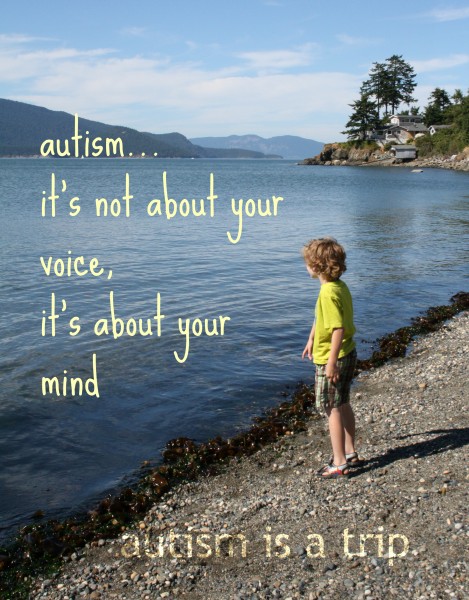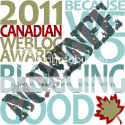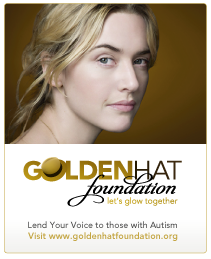Turning Over A New Leaf
How is it that fall just suddenly appears? Spring comes gradually, slowly revealed as winter loosens her grip on the earth. Summer takes over little by little, until our days are mostly warm and beachy. Even winter creeps in, as the winds get colder and the days get darker.
But not fall. Something happens right around Labour Day, and even when I’m looking for it, I miss it. One day we’re at the lake, cooling off in the water and trying to eat our sandwiches around the inevitable sand, and the next, it’s cooler. The shadows are longer in the afternoon. Cravings turn to baked goods, apple cider, and, yes, pumpkin spice (which, let it be known, I only appreciate in pumpkin pie and pumpkin bread).
Fall just… falls on us.
Which is kind of how time has happened for me. I got my autism/Asperger’s diagnosis just over two years ago, and I took a bit of a break from here to regroup. And now it’s fall, in 2016, and it’s been two years.
Fall is my most favourite season, so it seems fitting that it serves as the backdrop to my return.
I started this blog/website in March of 2010 as a way to share stories about my hilarious, autistic, then-four-year-old son. I wanted to show the world a face of autism they may not have been familiar with, and a family that functions on a different wavelength.
I think I’ve more than accomplished that, and today this blog is six and a half, and my son is just about eleven. He’s still quite hilarious, and now very much a tween. I still have stories to tell and experiences to share, but now they include myself as well as Jack.
As the fates would have it, Jack is homeschooling this year (a story I’ll share in a separate post), so there will be a lot to tell. There is also a lot to share about myself, my journey to a diagnosis, and how I came to finally know myself completely.
I hope this post finds you well, and I look forward to a long future together.
Namaste
Share this: Twitter | StumbleUpon | Facebook | digg | reddit | eMail Read MoreDays Gone By
It’s been a year since I’ve posted here.
A year.
A year to process my new reality and think about what that means.
For me, for Jack, for my site.
I think it means a lot.
So change is coming.
I am coming back.
Soon.
<3
Share this: Twitter | StumbleUpon | Facebook | digg | reddit | eMail Read MoreExtreme Air Park – Hostility, Greed, and Autism
We in the autism community are, sadly, used to hearing about maligned special needs parents and children. It’s become an all-too-common topic in the news and blogs lately. While most of us know or are familiar with some affected persons, it’s rare (at least for me) to have a situation happen right in your own backyard.
Or down the street, in my case.
We live in Langley, British Columbia, just South of Vancouver. From what I’ve experienced in the almost four years we’ve lived here, it’s a really nice community. The people are kind, the schools are good, and children are welcomed almost everywhere. We have parks and playgrounds and activities for families on almost every corner. It’s not Utopia, but it’s a great place to raise a family.
As a child with autism, Jack is welcome with all other children. He has not been excluded from anything he has wanted to do, to our knowledge. He is gaining independence, but he does need accompaniment of his SEA for school activities, and a parent or caregiver for much of everything else.
Kelly Moonie and her son Kyle live in our community. Kyle, like Jack, has autism. I don’t know the Moonie family personally, but I hope their experiences here in Langley have been similar to ours. Most of them, that is.
Recently, Kelly took her son to the Extreme Air Park location here in Langley, an indoor gym of sorts featuring wall-to-wall (and up the wall) trampolines. We’ve been there ourselves, and can attest that it’s a lot of fun. For everyone. We even have a t-shirt.
Kyle was accompanied to EAP with his caregiver, who is charged with assisting him and ensuring his safety. Kellie was told she needed to pay the full price for the caregiver to enter.
Businesses that cater to children often admit a caregiver for free, or at least at a reduced price. Here in Canada, we have a program called Access 2 Entertainment, that addresses the issue directly.
From their website:
Launched in December of 2004, the Access 2 Entertainment program seeks to offer more opportunities for people with disabilities to participate in recreational activities with an attendant, without added financial burden. It is also designed to raise awareness and help businesses provide quality customer service to customers with disabilities.
It is vitally important that special needs children enjoy as much of a “normal” life as possible, and allowing caregivers to accompany them is a major part of that.
After their visit, Kellie sent an email to EAP, explaining this issue, and suggesting they change their policies. She received an email in return, assuring her there would be no such change.
Kellie answered the email, pressing them further on the issue.
The response she got was much less polite, and much more hostile.
From the CBC article telling their story:
“Our system is computerized. I am not lying to you. We know how many people are on the floor at any given time. But what would you know. C U next Tuesday,” replied (Michael Marti, on behalf of ) Extreme Air Park.
Yes, you read that right. C U next Tuesday.
With apologies for the vulgarity, C-U-N-T.
I don’t even know where to begin with this. Calling your customers names is never good business, but in the case of a special needs parent trying to enlighten you on a very important issue?
Firestorm.
Extreme Air Park is a bouncing wonderland, almost made for autistic kids. Maybe that’s the problem. They don’t want autistics. Perhaps I’m wrong, but that’s definitely the message they’re sending. By inhibiting equal access, the Extreme Air Parks are making it very clear that they don’t care for special needs individuals in their establishments. And if those persons wish to patronize the place anyway, they’ll pay for the privilege.
Charging a caregiver full price when they are only there to facilitate the individual who needs them – similar to a seeing-eye dog, if you will – is just plain greedy.
Special needs parents and autistics have enough struggles and obstacles in life already without ignorant businesses piling on.
Even if you do not have a special needs child, the way the company handled this is outrageous and beyond the pale. True, it may have simply been an unprofessional employee taking matters into their own hands, but when you’re speaking for an entire company, you should know better. I have no doubt that any parent attempting to communicate with EAP would have met with similar hostility and derision.
I could go on and on and rant and rave, but I won’t.
Instead, I’ll let you do it. Please.
Please take a moment to tell Extreme Air Parks how you feel about their policies, and the way they treated Kelly Moonie.
Below are the contact numbers for all of the Extreme Air Parks in Canada:
Richmond 604-244-5867
Langley 604-888-8616
Calgary 403-265-2733
Edmonton 780-479-7790
They are also on Twitter: @Extreme_AirPark
It would appear they’ve deactivated their Facebook account, but you can send them an email directly on their website here.
On behalf of Kelly and Kyle, Jack, the children of Langley, and special needs families everywhere, I urge you to take a stand.
I am.
But first, I’m going to go throw away that t-shirt.
Share this: Twitter | StumbleUpon | Facebook | digg | reddit | eMail Read MoreAutism: Don’t Ask, Don’t Tell?
I am very fortunate to have a vocal readership. I receive a lot of comments, messages, and emails via my Facebook page, here, and on redOrbit. Some are of the “me, too!” variety, many are requesting advice, others are autism parents reaching out to an understanding ear.
Then there are the rest. The criticisms, the angry voices opposed to what I’m saying, the ones I’m just not sure about. The ones that make me shake my head and say “wtf?”
Yes, I actually say “wtf.” Clearly, I’m a fourteen-year-old girl trapped in this forty-something brain.
Normally I shrug them off. Occasionally I address them, when I feel like the writer is completely out of line or misconstrued my intent. More often I simply thank them for taking the time to read my work. It’s always nice to be read, whether or not it’s appreciated.
This week I received an email, in response to this post, that not only got my attention, it really got my ire up. Instead of merely ignoring or answering the email, I thought it would be better played out here, where I can share it with a wider audience. I honestly believe this is a subject that should be talked about.
Loudly.
Here is the email I received:
Dear Wendy,
I am assuming your story ‘Dear Son, You Have Autism‘ is real.
I believe you should not label your son as autistic, definitely do not tell him about. He looks to me, based on your story, as quite normal.
Our understanding of psychology and the underlying chemistry is yet in the infancy.
We are ignoring the negative effects which the ‘modern ‘labelling’ may have on self esteem and confidence of children and young people. I am in fact terrified seeing how easily Educators and Psychologists (in fact ignorant in Chemistry, Biology, Medicine and many other relevant Sciences) are labelling our kids with the whole spectrum of disorders.
This also happened almost 40 years ago to my son, labelled (sic) as hypersensitive, almost abnormal – the label ‘autistic’ has (sic) not been yet in use.
He finished his tertiary education brilliantly, and is since years an IT expert co-working with a team of researchers on mysteries of our brain.
SXXXXX
ps. I worked my whole life as an academic, educator and researcher and remain very critical of many of the modern classification – labelling (sic) methodologies. In particular terrifying is that these people are ignoring huge probability of being wrong.
So many things to say here. Where should I begin? I think I’ll go through it line by line.
I am assuming your story ‘Dear Son, You Have Autism’ is real.
If you had taken the time to look at my website, you’d see that yes, in fact, our story is indeed true. I don’t write fiction.
I believe you should not label your son as autistic, definitely do not tell him about. He looks to me, based on your story, as quite normal.
Tell me, how, exactly, does an autistic individual look? I’m guessing you don’t look ignorant, yet here we are.
What’s in a label? You call yourself an “academic,” and that’s a label. Some labels are pretty awesome. “Nobel Prize Winner.” “President.” “Canadian.” Why not call a spade a spade?
The larger issue here is the statement that my son looks, to you, “quite normal.” What, pray tell, is “normal?” Should I tell my son that since he can “pass” as normal, that he ought to? That he must hide his true identity, like the Jews in WWII, light-skinned blacks in the 1950’s and 1960’s and gay teenagers today?
That opinion puts you in pretty bad company. To insist that my child pretend he is something that he is not for your comfort or your ignorance or his safety makes you no better than the Klan in my book.
Harsh words, yes, but so is telling me to hide my child’s true self.
I have no more intention of keeping Jack’s autism from him than I have of keeping his place of birth or Scottish ancestory a secret.
Jack was born in Indianapolis. He is a direct descendent of William Wallace. And he has autism.
To say that my son should hide his autism like something to be ashamed of is absurd, ignorant, and discriminatory.
And I will not do it.
Our understanding of psychology and the underlying chemistry is yet in the infancy.
We are ignoring the negative effects which the ‘modern ‘labelling’ (sic) may have on self esteem and confidence of children and young people. I am in fact terrified seeing how easily Educators and Psychologists (in fact ignorant in Chemistry, Biology, Medicine and many other relevant Sciences) are labelling (sic) our kids with the whole spectrum of disorders.
This is true. It would also appear that you do not have a firm grasp on it yourself, or you would understand that a neurological variance such as autism is not something to be “terrified” of. Your statement that telling autistics that they are, in fact, autistic, will crush their self esteem and confidence is the exact reason we should. The opinion that someone with a difference should think of themselves as “less than” is antiquated at the very least.
What is that telling my son? That he should be ashamed of who he is? That he should wonder for the rest of his life why he doesn’t seem to think the same way as his peers? Why, when telling him the truth will set him free of wonder and worry?
I want my son, and all people with autism, to be proud of themselves. To be confident. To know that there are people out there, like yourself, who fear what they do not know and understand. Autistic individuals face enough difficulty and hardships in their daily lives, they shouldn’t have to add shame and fear to the mix.
We have evolved as a people. We are better than that.
This also happened almost 40 years ago to my son, labelled (sic) as hypersensitive, almost abnormal – the label ‘autistic’ has not been yet in use.
He finished his tertiary education brilliantly, and is since years an IT expert co-working with a team of researchers on mysteries of our brain.
At this point I would like to point out that you appear to have autism and ADHD/ADD conflated. Autism as a term has been around since the early 1900’s, and ADHD/ADD are not spectrum disorders. I am around the same age as your son, and I, too, was diagnosed (not “labeled”) with hyperkinesis, or being “hypersensitive” as a young child. I am not ashamed of it, nor do I believe it was an incorrect diagnosis.
You also seem to be assuming that we have not had our child assessed and diagnosed with professionals who know anything about biology, chemistry, medicine or neuroscience. You claim to be an academic, yet how much of these do you know? My child has been seen and assessed my no less than twenty professionals, including specialists in brain function, speech and early speech acquisition, sensory processing disorders (including fine and gross motor function), psychiatry, and numerous other disciplines.
They all agree: my child is incredibly intelligent, and definitely autistic.
I am pleased that your son finished his education brilliantly, yet saddened by the sense that you feel the need to justify him. He did not accomplish what he’s done in spite of who he is. He has triumphed because of who he is.
And that, my friend, is no less than what I want for my son.
So, I end this on a lighter note than when I began. I beseech you to keep your mind open to differences, and understand that children like mine may very well be the future.
Certainly, hiding in shadows and telling lies is no way to live anymore. History has told that story time and again.
I will leave you with the statement my son Jack has about having autism. This is his story, after all.
“Autism is not about your voice. It’s about your mind.”
And that’s all we have to say about that.
A version of this post originally appeared on redOrbit blogs.
Share this: Twitter | StumbleUpon | Facebook | digg | reddit | eMail Read MoreBe A Friend: What to Do When A Child You Know is Diagnosed
Among family and those I consider close friends (people I have real, off-the-computer relationships with), more than thirty of their children are either on the autism spectrum, suspected of being on it, or have associated behaviours (ADHD, etc). In the last month alone, two dear friends have had a child diagnosed with autism.
Autism is everywhere, and that’s all right. Learning a child actually has autism, however, can be quite a shock.
We suspected Jack had at least a sensory processing disorder, and were actually hoping for an official autism diagnosis. With a diagnosis comes support and interventions.
When the psychiatrist at his evaluation actually suggested autism, though, it was an ice cold smack in the face.
Sometimes, even when you know your child is autistic, it hurts to hear it out loud.
Hearing the words, seeing the actual reports and assessments in your hands… somehow changes the game. You’re no longer on the sidelines, rather, you’re suddenly center field with the ball in your hands. Game on.
So now what?
As the saying goes, there is no rest for the weary. Parents of a newly diagnosed child are suddenly inundated with action plans, financial concerns, and their own, often conflicted, emotions.
And people who want to help. Lots and lots of well-intentioned people.
Parents of autistics are often overwhelmed with good intentions that are not always constructive. Some actually hurt. I doubt most of these folks even realize what they’re doing.
So, I came up with a few suggestions.
Things you should not say or do to a parent with a newly diagnosed child:
1) Express sorrow and/or pity.
The child has not died, and has not been diagnosed with a terminal illness. Autism is a life-long condition, but it’s not a death sentence. Please don’t act as if it is. Sympathy is good, pity is not.
2) Immediately suggest a diet/test/protocol.
Every person with autism is different, and not all respond in the same manner to the same things. The family will likely explore all of their options to find out what will work best for their child.
3) Start forwarding them every single article/email/meme/book that mentions the word autism.
They have just entered this world, and need some time to adjust. Drowning them in autism stories only complicates the situation.
4) Ask what they think caused the child’s autism.
To date, nobody knows what causes autism. There are a multitude of theories, but no concrete evidence, anywhere. Some studies point to genetics, some point to environmental influences, but none have a conclusive answer. Parents do nothing to “cause” their child’s autism, and asking this question passively-aggressively implies they did.
5) Share horror stories.
This is similar to scaring a first-time mom with horrible birth stories. Yes, autistic children wander, are abused in schools, and are open to any number of other terrible things. Just as you shouldn’t talk about how many babies die in a particular form of childbirth to a pregnant mother, don’t start listing off every bad thing that has happened to every autistic child ever. Just don’t.
6) If you’re a parent of an autistic child yourself, don’t smother them with “assistance.”
When the family is ready, they’ll reach out. Think about when your child was first diagnosed, and how you felt. Treat them the same way you wanted to be treated.
Instead, here are some things you definitely can and should do for someone with a newly diagnosed child:
1) Offer words of support.
Instead of an “I’m sorry,” give love and friendship. An “I’m here for you” goes a long way.
2) Wait until you’re asked to give advice/suggestions/help.
Stand back, give them some room to breathe. If you let them know you’re there whenever needed, they’ll come to you. And if they don’t, that’s all right, too. Don’t be offended.
3) If you’re an autism parent (or autistic) yourself, wait until you’re asked to share stories.
I know it’s tempting to share your tales of success and failures in various areas, but there will be plenty of time for that down the line.
4) Stay positive.
But don’t pander. Parents don’t need to hear that “at least” it’s high functioning autism or that s/he can speak, or anything else that minimizes the situation. It’s condescending and unnecessary. Instead, compliment the child. The child is the same today as s/he was before the diagnosis.
5) Ask “how can I help?”
Parents new to autism need some time to process what’s happening with them and their child. Take them a meal, watch their other children for a bit, or simply ask to help with laundry or other household chores. A little gesture or respite goes a long way.
6) Be a friend.
This one should be self-explanatory. Be there when they need you. Lend an ear or a shoulder. Give unconditional love. Autism can be a very isolating thing for everyone involved – knowing there are people to turn to is immeasurable.
Support is the number one thing families of autistics want and need. In any way, large or small, it all helps.
A version of this post originally appeared on redOrbit blogs.
Share this: Twitter | StumbleUpon | Facebook | digg | reddit | eMail Read More